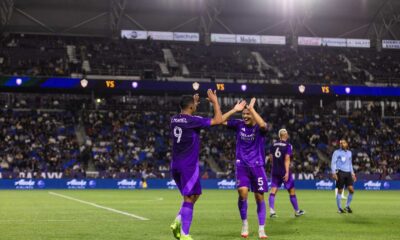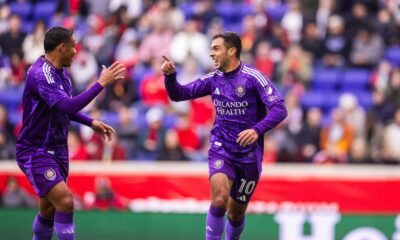Orlando City
Orlando City vs. Montreal Impact: Five Takeaways
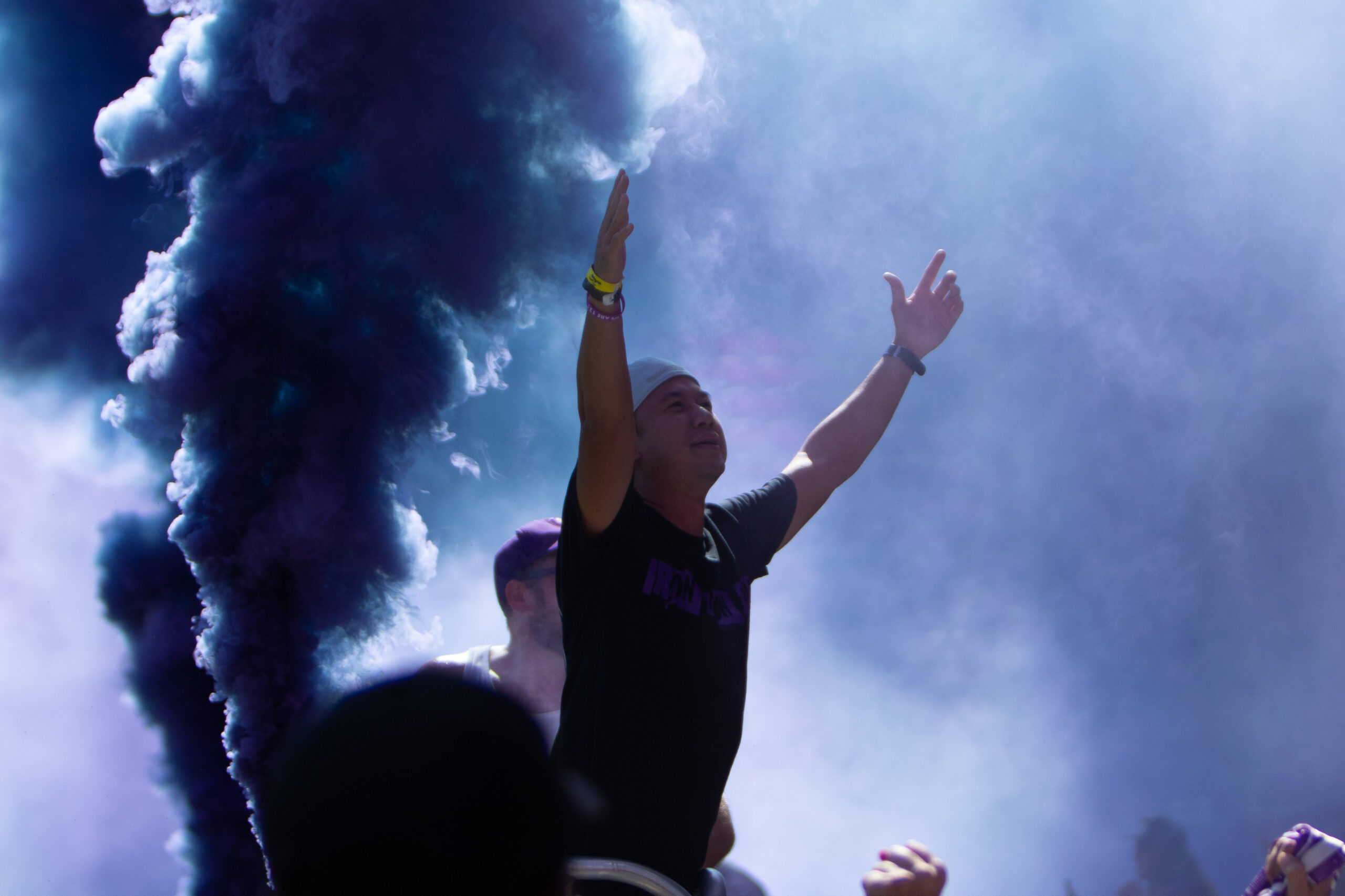
Orlando City returned home, after way too many miles on the road, sitting on six straight losses in MLS play, with an interim head coach, and a fan base hungry to see some glimmer of hope of staying about the red line.
It was a mere 10 days ago that Orlando City was across the border in Canada to face Montreal, suffering a 3-0 defeat. One day later, the club announced a parting of ways with Jason Kreis. There was a bright spot, as interim coach Bobby Murphy helped to lead the squad to a penalty shootout win after a 1-1 draw in the U.S. Open Cup on the road, against D.C. United this past Wednesday. The Lions came home and fell 2-0, so what can we learn from the club’s seventh straight loss?
Changes Do Not Happen Overnight
It has been nine days since the helm of the club has been handed over the Bobby Murphy. He came out in a somewhat surprising 3-4-3 formation in D.C., and brought the same formation out against Montreal. For anyone that expected the removal of Jason Kreis to be the switch that flips this team back on, you got your answer last night. The formation changed, the starting XI was somewhat changed, but the result on the pitch was the same. There are some inherent issues with the Lions that must be addressed, and they will not be fixed overnight, in the next training session, or the next week.
Players Looked Tired
Almost every starter for Orlando City looked tired from the sound of the first whistle. This past few weeks have been fairly grueling for the club, both physically and emotionally. Considering the weather and long delay during the U.S. Open Cup match on Wednesday, it should not be that surprising to see some players gassed. The players were also asked to play a new formation, with new responsibilities, and you could tell.
Fast forward to last night, and you could feel and see the physical and mental exhaustion from the club. Five of last night’s starters played 120 minutes on Wednesday on the road. Sacha Kljestan and Justin Meram, just looked a step behind. After they made runs, either in attack or defense, you could see they needed a few seconds extra to recover.
Dom Needs Help
Dom Dwyer is one of the darlings of Orlando City, but this season may be showing that leaving him up top by himself is not the best way to utilize his strengths. MLS defenders may have figured out that the best way to defend Dom is to be physical. This physicality appears to get to him mentally over the period of the match. The attack may be better suited to have Dom paired with another hold-up style striker, or a possession-based attacking midfielder that has the speed to push the attack up the middle with Dom. The key to this is speed.
Playing Wide Isn’t Working
Orlando is still working the philosophy of stretching the opponent by utilizing the wings, sweeping the ball and possession from side to side in the back and deep defensive midfield until pathways open and attacks can be pushed forward. The problem with this, as was evident last night, is that as play is pushed up the wings, players are not pushing properly with it. As Murphy said after the match, “With the change in shape, part of it lends itself to some natural width but if the width isn’t provided in the right way, it actually makes you narrower, if that makes any sense at all.”
Dom is typically the only player crashing the box, with multiple players overlapping wildly on the edges, holding too deep in the attacking third, or just not moving at all. Too many times were players trying to occupy the same space.
Lack of Something
There is certainly something lacking right now with the Lions. Maybe it is the current state of chaos. Communication on the pitch looks non-existent. Infighting between teammates is open for everyone in the stadium to see. Players are constantly out of position with no help coming from the formation players that should be switching. Frustration is growing, and I am not referring to fan frustration. The match last night seemed to get to a few players, both physically and mentally, like Meram and Dwyer, and a few physical moments occurred. Where was the captain last night, getting everyone settled, telling players to calm down, and reminding everyone of just what their role is?
There are plenty more takeaways, but I want to hear from you on some of the things you noticed from last night’s match. I realize we are all very opinionated and emotional right now, so vent in the comments, but do me a small favor and try to keep it civil. I’ve had to remind myself of that daily.
Orlando City
Intelligence Report: Orlando City vs. Philadelphia Union
Find out how the season has been treating the Philadelphia Union since the two teams met in the season opener.
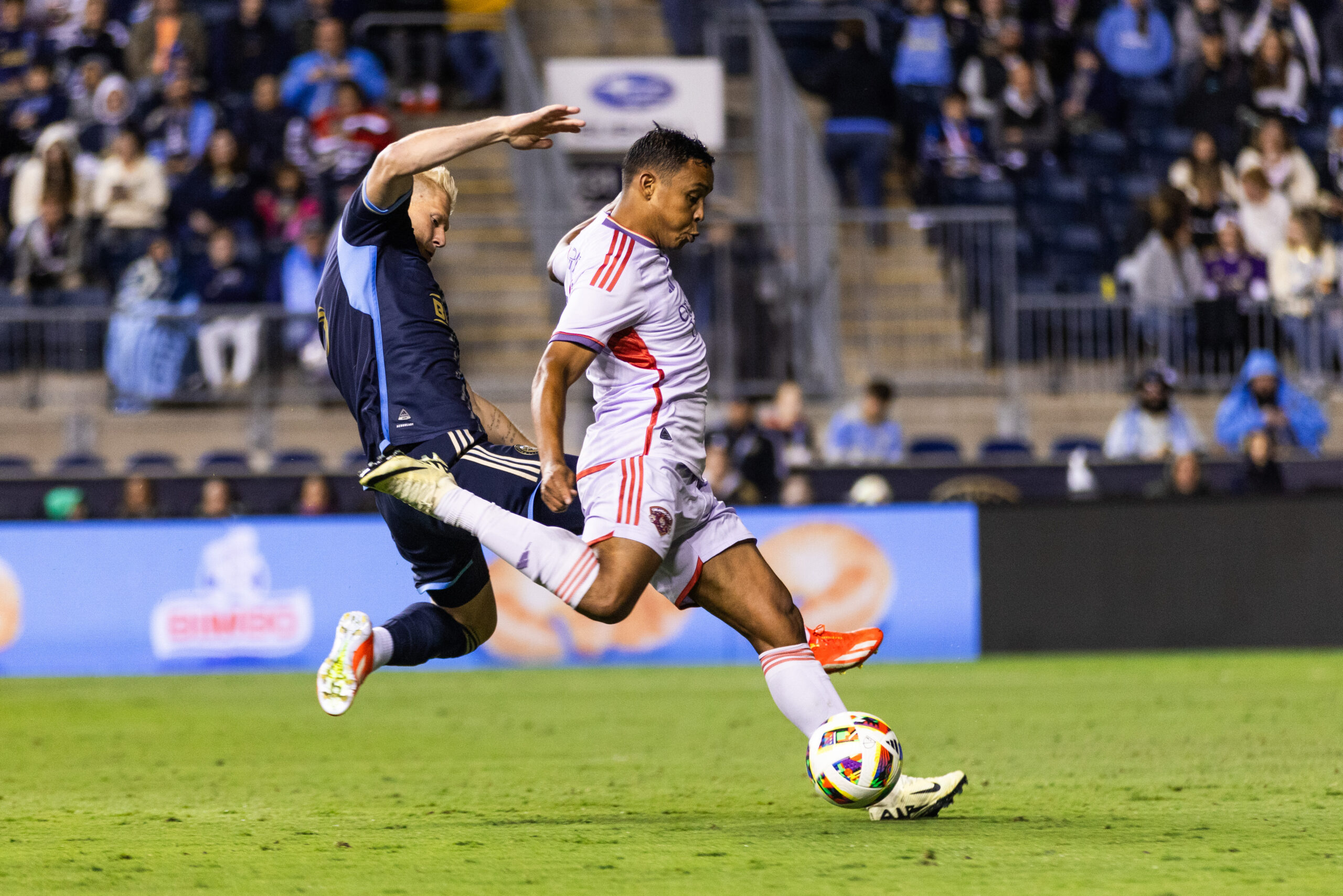
Orlando City has strung two wins together for the first time in the 2025 Major League Soccer season, and now the Lions will try to make it three on the bounce. Along with the chance to extend the winning streak to three games comes the opportunity for revenge against the Philadelphia Union. The Union got the better of Orlando in the first game of the season to the tune of a 4-2 victory, and now we’ll have a chance to see what sort of progress OCSC has made since then.
Before that, though, I spoke to Matt Ralph, the managing editor of Philadelphia Soccer Now, to see how things have been going for Philly since that first game of the season. He was kind enough to help get us up to speed on a Union side that’s been one of the best in the league so far.
The Union don’t seem to have had much problem in adjusting to how Bradley Carnell wants to play. What’s made this team so successful through its opening six games?
Matt Ralph: The players have bought in, and the new additions have fit in well. One of Carnell’s strengths is his communication, and like Jim Curtin before him, he has done a great job of being consistent with his messaging and has created a challenging training environment that has prepared his players well week to week. Carnell has put his stamp on the “Philly tough” approach, no doubt, but many of the ingredients were already in place, and if anything, he’s cranked things up another notch with the intensity he expects day to day in training and within the 90 minutes. That’s not necessarily a bad thing, but both losses have shown that there is little margin for error, which is not really a new phenomenon for a team over the last decade that’s become known for punching above their weight.
Let’s talk about Golden Boot leader, Tai Baribo. Outside of the great scoring numbers, what does he bring to the team?
MR: Baribo will be the first person to deflect credit to his teammates and his humility and team-first mentality is one of his greatest attributes. When you see him get stuck in to make a tackle in the middle of the park in the 80th minute, it illustrates how much his work rate and willingness to do anything to win — whether the goals come or not — impacts the team.
Obviously it’s pretty early in a long season, but the Union have been impressive so far. What would be seen as a successful season for this group?
MR: It’s pretty much playoffs or bust, and once they get to the post-season, as we know, all bets are off. A competitive U.S. Open Cup run would be nice, though the schedule in May is not very kind.
Will any players be unavailable due to injury, suspension, etc.? What is your projected starting lineup and score prediction?
MR: Kai Wagner is questionable again, so look for him to come off the bench at the very least. I think there will be one or two changes in the starting XI, be it Indiana Vassilev, Bruno Damiani, or Olwethu Makhanya starting, but it will mostly be a similar look (with Nathan Harriel healthy) from match day 1.
Projected starting XI: Andre Blake; Frankie Westfield, Ian Glavinovich, Jakob Glesnes, Nathan Harriel; Jovan Lukic, Danley Jean-Jacques, Quinn Sullivan; Daniel Gazdag, Bruno Damiani, Tai Baribo.
The Union haven’t drawn a match yet this season and Orlando has shown they can score (first in the league with 15 goals), so I’m going with a 2-2 draw.
Thank you to Matt for the refresher on the Union. Vamos Orlando!

Lion Links
Lion Links: 4/4/25
Orlando City gets ready for the Philadelphia Union, OCSC partners with Footy Access, USWNT prepares for Brazil, and more.
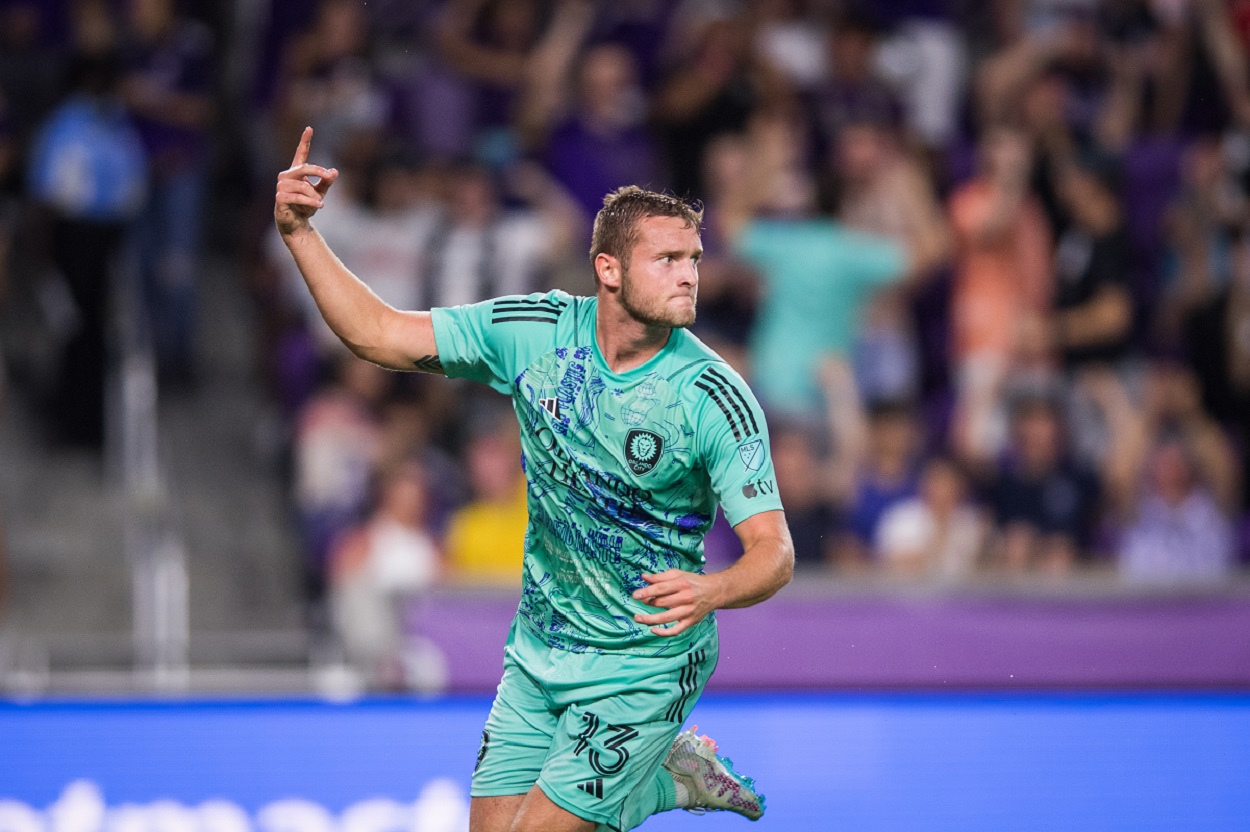
Happy Friday! It may feel a bit like the calm before the storm today, as Orlando City, Orlando City B, and the United States Women’s National Team are all in action on Saturday. It all makes for a fun next few days and I’m looking forward to it and also watching some kart racing on Sunday. Let’s get to the links!
Orlando City Gets Ready For the Philadelphia Union
The Lions are back in action Saturday with an away game against the Philadelphia Union at 7:30 p.m. Orlando has won its past two games and leads the league with 15 goals this season. The Union remain near the top of the Eastern Conference, but have lost two of their past three games. Duncan McGuire detailed how healthy competition and a willingness to defend has the offense firing on all cylinders heading into this match.
This will also be a rematch of the season opener on Feb. 22 when the Union won 4-2 at Inter&Co Stadium. Philadelphia Union Head Coach Bradley Carnell spoke on how Orlando is a different team compared to that match due to changes on offense and center back Robin Jansson’s recovery from a knock.
Orlando City Partners With Footy Access
With the Generation Adidas Cup set to take place later this month, Orlando City has partnered with Footy Access, which is a media company focused on youth soccer. This collaboration means fans will be able to enjoy highlights and interviews from Orlando’s academy as it progresses through the tournament. I’m pretty excited about being able to see how well Orlando’s academy is doing.
MLS NEXT also announced that new rankings focused on development rather than results will be used for its U-13 and U-14 age groups. These rankings will use an analytical formula that measures game play and the caliber of offensive and defensive actions. There will also be encouragement for teams to have their own identities on how they want to play.
USWNT Prepares to Face Brazil in Friendlies
The United States Women’s National Team will take on Brazil on Saturday in the first of two friendlies this international break, with the second match set for Tuesday. These friendlies will be rematches of last year’s Olympic gold medal match, which the U.S. won 1-0. Marta has retired from international soccer, but Pride midfielder Angelina was called up for these friendlies, along with former Pride forward Adriana. Lorena, who has only conceded one goal in three games for the Kansas City Current this season, will likely get the start in goal for Brazil behind a talented back line anchored by Tarciane. The USWNT will need to find ways to limit attacking threats like Kerolin and Gabi Portilho as well. These should be matches, with familiar faces on both sides for Orlando fans.
U.S. Set to Host 2031 Women’s World Cup
It looks like the 2031 Women’s World Cup will be held in the U.S., as FIFA President Gianni Infantino stated that the only bid came from the U.S. and potentially other Concacaf nations. The U.S., which withdrew from hosting the 2027 World Cup, would be the first country to host the tournament three times and last hosted it in 2007. The United Kingdom was also revealed as the lone valid bid to host the 2035 World Cup and it would be the first time the tournament is hosted there.
Free Kicks
- Shout out to Orlando City’s U-19 team for its title win and securing a spot in the MLS NEXT Cup playoffs.
- NJ/NY Gotham FC and Head Coach Juan Carlos Amorós have reached an agreement for a contract extension that will keep him at the club through 2029.
- The schedule for the third round of the U.S. Open Cup is out, with more USL Championship teams joining the fray. Only two MLS NEXT Pro teams remain, while El Farolito is the lone team from an open division still standing.
- Philadelphia Union forward Tai Baribo was named MLS Player of the Month for his performance in March and February. The 27-year-old scored six goals in five games, with five of those goals coming in the Union’s first two games of the season.
- As for the NWSL’s monthly awards, Kansas City forward Temwa Chawinga won Player of the Month after scoring in all three of her games so far this season. Houston Dash midfielder Maggie Graham claimed Rookie of the Month for scoring in her first two appearances.
- Goalkeeper Tim Melia has announced his retirement from professional soccer after a 17-year career that included 10 years with Sporting Kansas City.
- Toronto FC added midfielder Maxime Dominguez on loan from Vasco da Gama in Brazil’s top flight.
- Arsenal’s injury woes this season continue, with defender Gabriel Magalhaes set to miss the rest of the season due to a hamstring injury.
- We’ll end our links with the Lions celebrating Rodrigo Schlegel’s birthday in style.
That’s all for this fine Friday, I hope you all have a fantastic day and a relaxing weekend!
Orlando City
Orlando City Relies on Starters More Than Any Other MLS Team
An analysis of Óscar Pareja’s early lineup choices and substitution patterns and how that compares to the 2024 season.
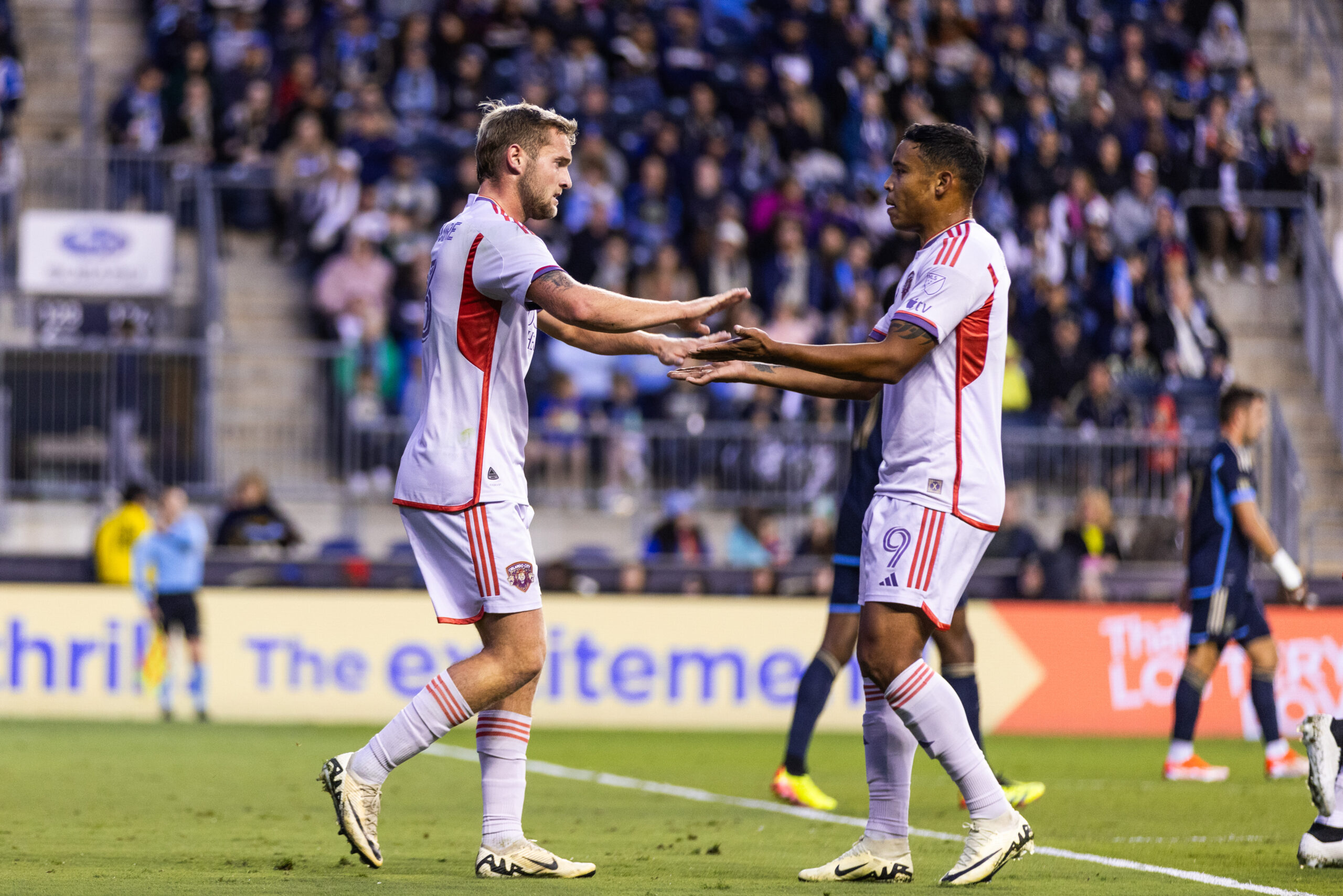
Legendary swordsman Inigo Montoya, a man who is not lefthanded, once opened a conversation by asking the Dread Pirate Roberts if, by any chance, he had six fingers on his right hand. Nobody will need to prepare to die by the end of this column, but I will ask a similar question: I don’t mean to pry, but did you by any chance happen to realize that we are already more than one-sixth of the way through the MLS regular season? Six fingers, one-sixth of the season…close enough. Let’s go.
Time flies when you are having fun, and somehow Orlando City has already played 540 minutes of MLS soccer this season. I consider 500 minutes played to be a cutoff amount when looking at player and lineup performance, and with the conclusion of the most recent game in Los Angeles, the team has now surpassed that 500-minute threshold.
In looking at the opening 540 minutes, I was surprised to see how much continuity I found in the minutes played, considering how many injuries the Lions have had to work around during these first six games. In just the first six games, Orlando City has already had full games missed due to injury by César Araujo (1), David Brekalo (2), Robin Jansson (2), Duncan McGuire (3) and Nico Rodriguez (5). Brekalo and Pedro Gallese both missed a game for international duty as well. McGuire was not expected back during the first set of games, but all of those other players, with the possible exception of Rodriguez, were expected to contribute during the early part of the season.
These absences led to games where the substitutes list was full of players who will play big minutes for Orlando City B this year, but not players who Óscar Pareja was likely to turn to off the bench unless the game was out of hand or he was absolutely desperate. According to Opta’s tracking through the opening six games, Orlando City ranks last in MLS in the average minutes played by its substitutes, as the average amount of time per appearance for the players off the bench for the Lions is only 12 minutes. For context, 16 teams have an average amount of time per substitute appearance of 20 minutes or greater, and Inter Miami and Toronto are tied with a league-leading 27 minutes per substitute appearance.
The interesting thing about those two teams, Miami and Toronto, is that Miami leads the league in points per match with 2.6 and Toronto is second from the bottom with a scant 0.33 points per match. I think a lot of this data will even out over time, as right now there are several teams, including Miami, that are playing in multiple competitions and trying to keep players fresh for all of their matches.
When it comes to Orlando City, however, that is not the case, and thus far there has just been the standard one game per week on six consecutive Saturdays. The players are rested for each game. The issue has just been that Pareja has not had the depth and variety of players he thought he would have to bring off the bench to protect a lead or chase a deficit.
We often joke in articles or on The Mane Land PawedCast about how “Óscar gonna Óscar,” and once he finds a lineup he likes, he sticks with it. Even with all the injuries he has somehow managed to do this again this season, as you can see from the chart below. I started tracking lineup data last season, and even though the 2025 season is only six games old and there have been so many absences from key players this season, it was striking to see that the 11-man lineup that has played the most minutes together this season already outranks all but two lineups from the entire 2024 MLS season (including the five playoff games!):

Now, it is a little unfair to the one 2025 lineup on the above chart that it has such a negative goal differential per 90 minutes, because if it is only the 10 field players, with goalkeeper excluded, then that lineup has played 215 minutes together and has a +0.84 goal differential per 90 minutes. That group is +4 with Javier Otero in net in 74 minutes together, and removing the goalkeepers from the calculation turns that negative goal differential into a positive.
What that also tells us, however, is that when it comes to the 10 field players, Pareja has played the same unit in the field for 40% (215/540) of the team’s minutes already. Granted it is early in the season, but after six MLS games last season, the lineup that had played together the most had played a grand total of 74 minutes together (14% of all minutes). The top five most used lineups in last season’s opening six MLS games combined to play 302 minutes, or 56% of all minutes, and in 2025 it is 402 minutes, or 80%. My math, and everyone else’s math, says that is a much higher percentage and indicates that the team is focused on continuity early.
That continuity thus far this season has paid dividends, with the Lions earning 10 points from the first six games, twice as nice as last season’s five points after the first six games. Last year, the team was balancing midweek Concacaf Champions Cup games in addition to injuries and an international break during the opening weeks of the MLS season, so there were some good reasons for the lineup rotation and the slow start. This year’s squad will have to navigate two upcoming cup tournaments in the coming months, and so we likely will see a lot of new lineup configurations or more rotation once the U.S. Open Cup starts in May and then again when Leagues Cup starts in July.
Thus far though, Pareja has been able to stick with his starters deep into matches, and has only given playing time to 20 players, which is tied for third fewest across all of MLS. Fan bases often clamor for the coach to “play the kids,” but while Pareja has had young and inexperienced players on the senior roster for every game, he really has only given significant minutes to Alex Freeman from the group of players that could be referred to as “the kids.” Gustavo Caraballo has played nine minutes, which is incredible for a 16-year-old (15-year-old Cavan Sullivan of Philadelphia is the only player younger than Caraballo to have played this season, and he has also played only nine minutes), and new signing Nico Rodriguez (20 years old) has played 11 minutes, but the next three youngest players to play are all at least 22 and were with the senior club last season (Otero and Ramiro Enrique) or came to the club after four seasons of college soccer (23-year-old, but nearly 24-year-old, Joran Gerbet).
The team’s record thus far shows that Pareja has been right to limit the minutes to the small group of players he trusts, and with one game per week for the next six weeks it will be interesting to see if the early trend of starters playing long minutes and only a few players getting all the minutes off the bench continues. The next match is on the road against Philadelphia, which so rudely came into Orlando and defeated the Lions 4-2 in the season opener, and my expectation is that while we likely will not see any players make their season debut in this game, I do think we will see a different starting lineup than the season opener and probably a different one than the game last weekend against the Galaxy.
No matter who the Lions go with, I am sure they will want to avenge the season-opening loss and bring three points back home to Orlando.
As we wish.
Vamos Orlando!
-
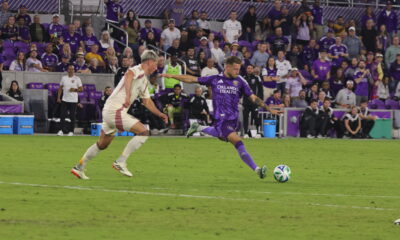
 Orlando City2 weeks ago
Orlando City2 weeks agoOrlando City vs. D.C. United: Final Score 4-1 as Lions Blast D.C. at Home
-
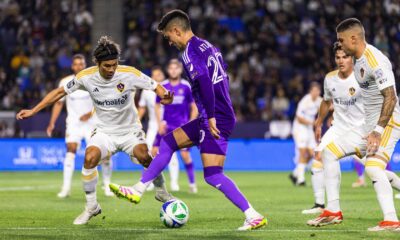
 Orlando City5 days ago
Orlando City5 days agoOrlando City vs. LA Galaxy: Final Score 2-1 as Cardiac Cats Score Late to Earn First Road Win
-
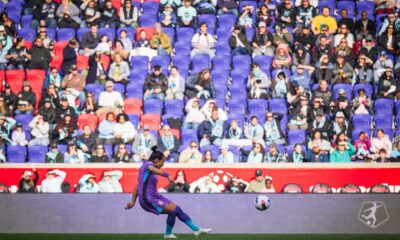
 Orlando Pride2 weeks ago
Orlando Pride2 weeks agoOrlando Pride vs. NJ/NY Gotham FC: Final Score 2-0 As Pride Take Three Points Away From Home
-
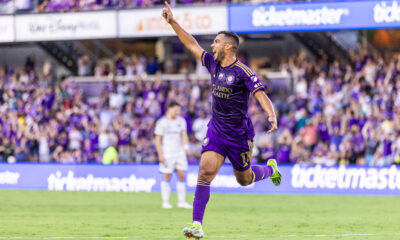
 Orlando City2 weeks ago
Orlando City2 weeks agoOrlando City vs. D.C. United: Preview, How to Watch, TV Info, Live Stream, Lineups, Match Thread, and More
-
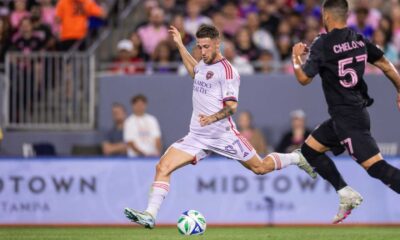
 Orlando City1 week ago
Orlando City1 week agoOrlando City’s Offense Looks Different With Marco Pašalić on the Right
-
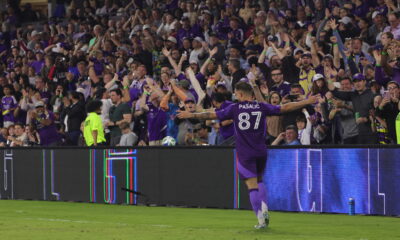
 Orlando City2 weeks ago
Orlando City2 weeks agoOrlando City vs. D.C. United: Five Takeaways
-
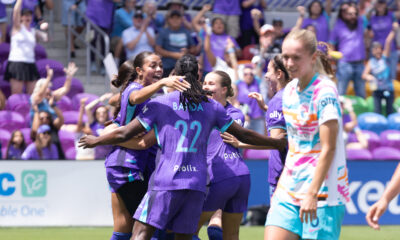
 Orlando Pride6 days ago
Orlando Pride6 days agoOrlando Pride vs. San Diego Wave FC: Final Score 2-1 as Pride Win Third Straight
-
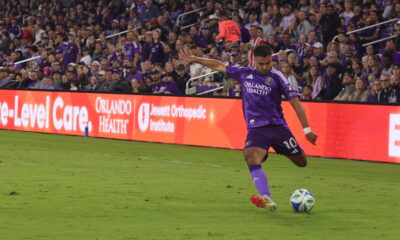
 Orlando City2 weeks ago
Orlando City2 weeks agoOrlando City vs. D.C. United: Player Grades and Man of the Match


